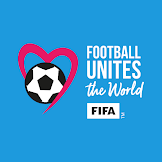Leisa Duckwall works in the cafeteria in Nansemond Parkway Elementary school in Virginia, USA. She has worked there for four years serving food to students and in those four years, no students have ever communicated with her, other then to point at food.
Why do you think this is?
Leisa is deaf and no one at the school has take the time to learn sign language, so in four years no-one has ever communicated a "good morning" or a "thank you" to her as she serves food.
Everything changed when one of the teachers, who knows sign language, struck up a casual conversation with Leisa while wating for her class to be served. Kari Maskelony has friends who are deaf and she knows how to communicate. She says, "I noticed that all the kids realised Ms Duckwall couldn't hear them. But they were pointing to what they wanted, and then she would have to point and have them say yes or no."
When she chatted with Leisa using sign language, she noticed all the children in her class were staring. Next day, Kari asked her class if they would like to learn to sign what they wanted for lunch instead of pointing and they all said yes.
What words do you think they started with?
They began with main courses chicken, fish and then letters such as R fir rice or C for carrots.
The students wanted to learn more and then the idea started to catch on. The school decided to teach all children how to communicate using sign language and lessons began. Every day the students learn a new word.
Kari says, "Not only is it great for the kids because they can learn a new skill they can carry with them and actually use with other people that they meet, but I think it's great because equal inclusivity and equal access is so important."
-What is sign language?
- who is sign language for? (everyone)
- Imagine working for four years and no one saying hello or thank you; how do you think Ms Duckwall felt at work every day?
- why did no one say hello? (children might say it's because Leisa is deaf, but that's not the reason. The reason no-one spoke is because no one had worked out how to communicate.)
- How do you think Leila felt the first time someone used sign language to ask food?
- Should Leila be working in a cafeteria if she is deaf? (the aim of this question is to make the children stand up for equality and be angry that the question has even been asked.)
- What law in the UK includes disability as a protected characteristic? (The Equality Act 2010)
- what are the other protected characteristics? (race, religion, age, sexual orientation, sex, gender reassignment, marriage and civil partnership, pregnancy and maternity)
- why do you think the Equality Act was invented?
- "equal inclusivity and equal access is so important." what does this mean?
- what can we learn from Leila?
- what can we learn from the school?
- why is this about No Outsiders?
- which British Value is this story about?
www.no-outsiders.com



























